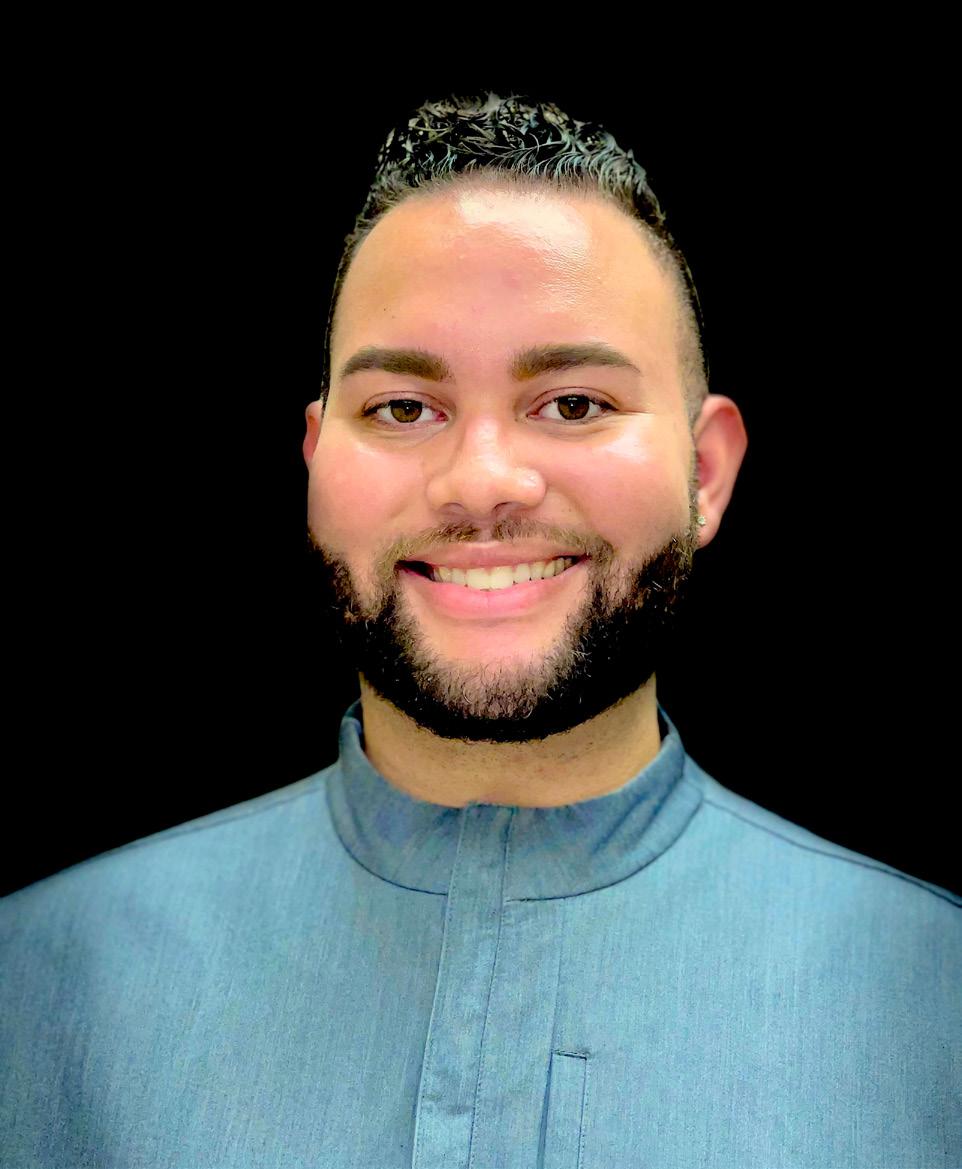
5 minute read
CELEBRATING THE VITAL ROLE OF CNAS IN HEALTHCARE
How One Cna Finds Balance Amongst Chaos
By Payton Babb Sy, RN
ALRIGHT, NURSES , how about we give a shoutout to our certified nursing assistants (CNAs)? There are about 1.4 million CNAs employed in the United States, which, according to the U.S. Bureau of Labor Statistics, equates to about one CNA for every three employed registered nurses. But it’s not just about the numbers; it’s about the impact each CNA makes in the healthcare world.
In whatever way CNAs have touched you and your nursing practice, here’s the story of how one CNA, Anthony Cordova, sees his part in the greater healthcare system and what keeps him going.
Anthony has been a CNA for five years, initially starting in a pulmonary unit in 2018. Later, he transitioned to the professional nursing resource team, working as a float CNA across various specialties, including behavioral health, orthopedics, neurology, gastrointestinal oncology, critical care, intermediate care, and cardiac telemetry.

BEHIND THE SCENES
Think back to the last time a CNA really saved you. Was it when they noticed a patient seemed off? What about when they did all your morning vitals for you? Or maybe they’ve just been a comrade to the chaos, giving you a supportive nod when you’re at your wit’s end.
We often forget that in most states, CNAs can receive specialized training to perform additional tasks to help nurses, including checking blood glucose levels, administering IV fluids, providing basic wound care and catheter care, phlebotomy, and telemetry monitoring.
I am very fortunate to work with many nurses who make me feel seen and appreciated. They recognize the important role that I play in patient care and are always willing to lend a helping hand and or provide support when I need it.
Anthony works as a float in many units in his hospital system and has advanced his CNA training to do some of these tasks. “That allowed me to do IV dressing changes [and] IV therapy,” he explained. CNAs have a unique role of not only anticipating a patient’s needs but also the needs of the nurses they work with — and that skill cannot be overstated.
TRAVEL, RECHARGE, REPEAT
Despite juggling his responsibilities and floating to various units, Anthony has a few strategies in place to stay grounded.
Anthony said, “I love to travel. Love, love, love to travel. I’m usually planning a trip every other month, if not every month, like a little weekend getaway somewhere. This year, I’ve been to [the] Dominican Republic, New York, Nashville…”
Anthony prioritizes the need to take breaks. “I’m a firm believer that people need to recharge,” he explained.
By taking advantage of his company’s self-scheduling, he is able to choose his days off to create long weekends. He also floats to different units, using the float differential to save up for trips.
He’s in nursing school now, but he’s consistently surprised at the career opportunities that have been available to him as a CNA. His greatest advice to other CNAs looking to expand their careers? Follow the golden rule. “I think that being nice to people really goes a long way.”
THE HEART OF HEALTHCARE
Many key patient interactions happen with CNAs. Being such an integral part of the team, CNAs deserve recognition and appreciation.
Anthony said, “I am very fortunate to work with many nurses who make me feel seen and appreciated. They recognize the important role that I play in patient care and are always willing to lend a helping hand or provide support when I need it.”



To show a CNA that you appreciate them, write them a thank you note. Support them in their careers and professional endeavors and never talk down or bully them, especially in front of patients. It’s important to involve CNAs in planning the day and explain clinical decisions when you have time, always making them a part of the team. If your hospital doesn’t have a way to formally award or recognize CNAs, advocate to create a system to do so.
Working in healthcare, it’s vital that all team members feel appreciated and have the opportunity to recharge. Anthony added, “[The nurses] also take the time to listen to my concerns and ideas, which makes me feel valued and makes me feel needed. Overall, I think that the key is feeling appreciated as the nursing assistant and that there is an open communication and a spirit of collaboration between the nurses and the CNAs.”
CNA Vital Statistics
1.4 million nursing assistants were employed in 2022.
33% of CNAs work in skilled nursing facilities.
The median pay for a CNA in the U.S. is $17.18 per hour.
Attacking the Immune System) Foundation created an award given to outstanding nurses, there is currently no national organization for CNA awards. Some hospitals have created their own, such as the Sunshine, Bee, or Petal award.
SOURCES
U.S. Bureau of Labor Statistics. (2023). Nursing Assistants
U.S. Bureau of Labor Statistics. (2023). Registered Nurses
PAYTON BABB SY is a registered nurse and the owner of PaytonRNwriter. com. Of the nursing specialties, family medicine is her favorite. If she’s not writing, she’s planning her next trip to a national park or relaxing poolside with her family in Phoenix.










